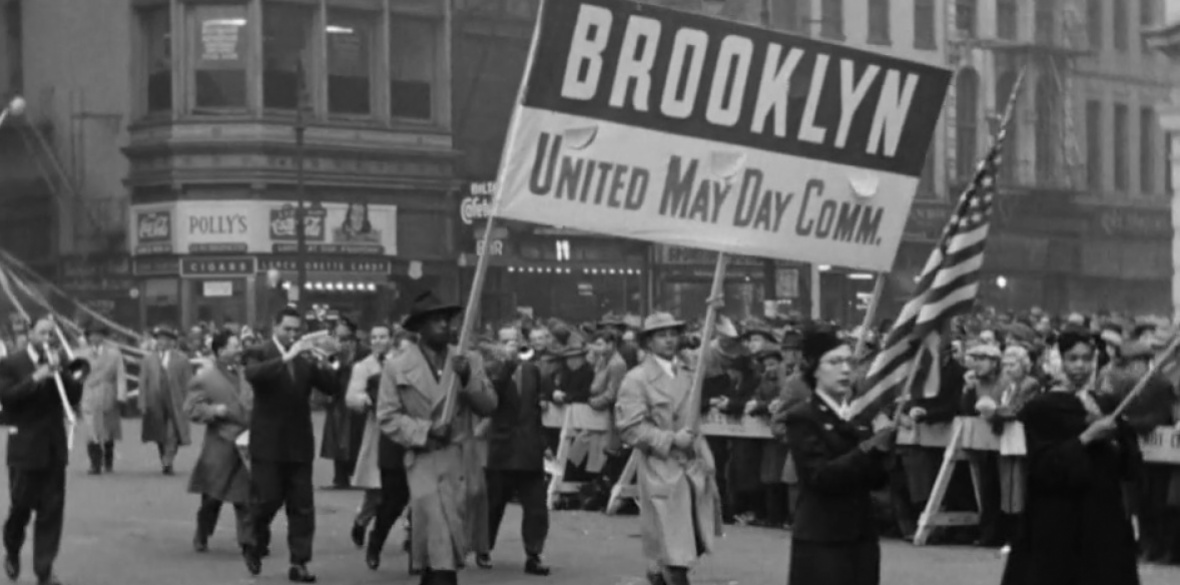This is the last article you can read this month
You can read more article this month
You can read more articles this month
Sorry your limit is up for this month
Reset on:
Please help support the Morning Star by subscribing here
IN 1935 literary critic, essayist and journalist Vivian Gornick was born a “red-diaper baby” in the Bronx, New York, to parents who were members of the Communist Party of the USA (CPUSA).
How this upbringing impacted on her life is succinctly expressed in the opening line of this book: “Before I knew that I was Jewish or a girl I knew that I was a member of the working class.”
She grew up in a house where the Daily Worker was read avidly and which hosted frequent and vibrant party meetings, discussions and political debate.
But by the time she was 20 her household, community and party was flung into disarray as a consequence of the revelations brought to light in Khrushchev’s “secret speech” in 1956 to the Soviet Communist Party congress.
Those revelations, says Gornick, “snapped the last thread in a fabric that was already near disintegration.” She moved away from communist politics, focusing more on her interests in literature and the feminist movement.
Her book The Romance of American Communism, first published in 1976, was a response to what she describes as a growth of “dogma” emerging in the feminist circles which she was by then heavily involved with and how this reminded her of the schisms in communism that dominated her youth.
Her aim was to write “an oral history of ordinary American communists that would serve as an inspired piece of sociology about the relationship between ideology and the individual” and to demonstrate how the universal hunger for a better life inherent in that relationship is put under threat “when ideology is taken over by dogma.”
Thus she spent a year traversing the length and breadth of the US interviewing former communists from every part of the country and the rationale of her voyage may cause alarm bells to ring — the publication of “horror stories” by anti-communist former communists seeking acceptance into the mainstream is a well-worn path.
Lurid tales of denunciations, “party lines,” discipline, democratic centralism and expectations of total loyalty have often been told in order to scare children and keep the “man on the Clapham omnibus” on the right track.
Gornick addresses this early on, pointing out the inherent dishonesty of works such as the God That Failed and Arrow in the Blue for their sarcastic and confessional tone that, with all the zeal of the convert, borders on self-flagellation
In her attempt to establish how members of the party felt about being communists and how it fulfilled an emotional need to “belong,” there is very little actual history, and real-world events are rendered as distant in the background, merely context for what she sees as more important — what people thought and felt.
Her questioning of each person centres on finding out why people joined the party, what membership meant to them and what it felt like when they left and she often reports how, despite the fact that members were sometimes experiencing great difficulty and doubt, they were infatuated with a sense of wholeness “that struck them “to the very core of their being.”
Her subjects came from as diverse origins as the demographics of America allows. From her own Jewish working-class community in New York, migrants from Eastern Europe, coalminers, co-operators in Los Angeles and intellectuals from rich families.
The theme that runs through the book, backed up by testimony, is how people living in abject poverty came to find meaning and purpose in their lives through the communist party. Gornick’s contention is that the party transformed people into humane, purposeful and “self-actualised” human beings.
The downfall of the book is that it is, as the author admits, rather repetitive and written in an overly sentimental style.
It will not inform the reader in any way about the history of either the US or its communist party but it remains an endearing anecdotal accompaniment to detailed political analysis.
Published by Verso, £14.99.










